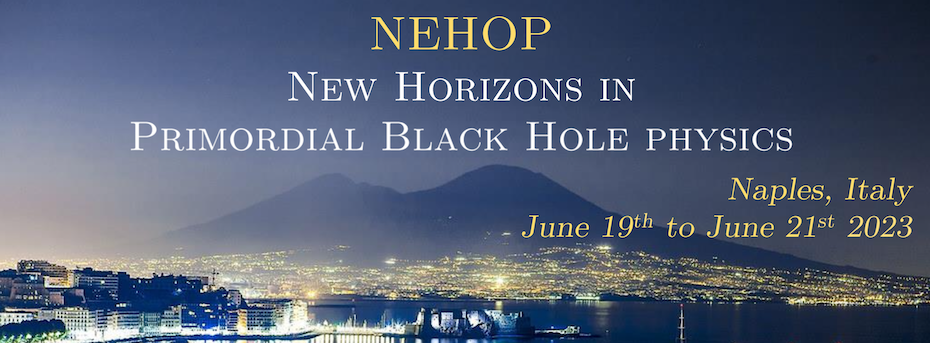Speaker
Description
We consider a cosmological scenario in which the very early Universe experienced a transient epoch of matter domination due to the formation of a large population of primordial black holes (PBHs) with masses $M \leq 10^9~{\rm g}$, that evaporate before Big Bang nucleosynthesis. In this context, Hawking radiation would be a non-thermal mechanism to produce a cosmic background of axion-like particles (ALPs). We assume the minimal scenario in which these ALPs couple only with photons. In the case of ultralight ALPs ($m_a \leq 10^{-9}~{\rm eV}$) the cosmic magnetic fields might trigger ALP-photon conversions, while for masses m a ≳ 10 eV spontaneous ALP decay in photon pairs would be effective. We investigate the impact of these mechanisms on the cosmic X-ray background, on the excess in X-ray luminosity in Galaxy Clusters, and on the process of cosmic reionization. We outline possible developments of this scenario including BH rotation and superradiance.

